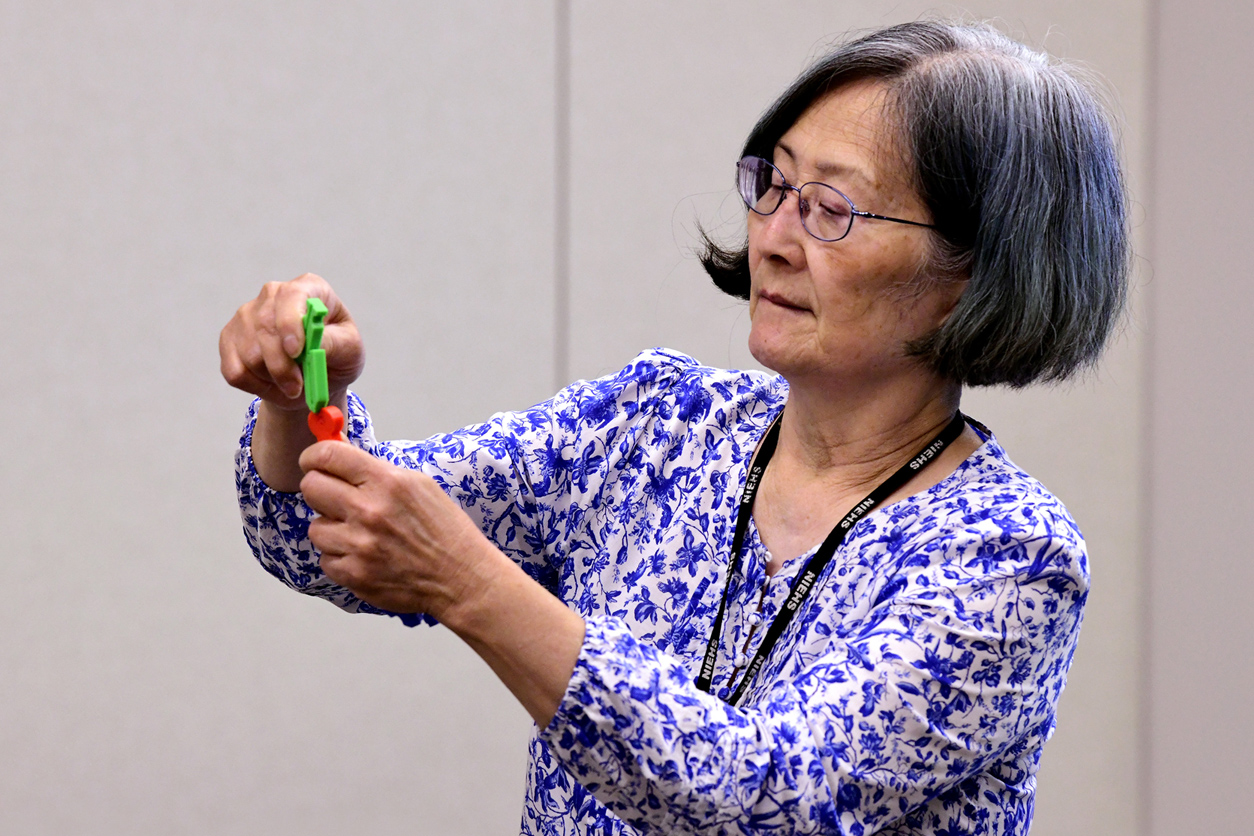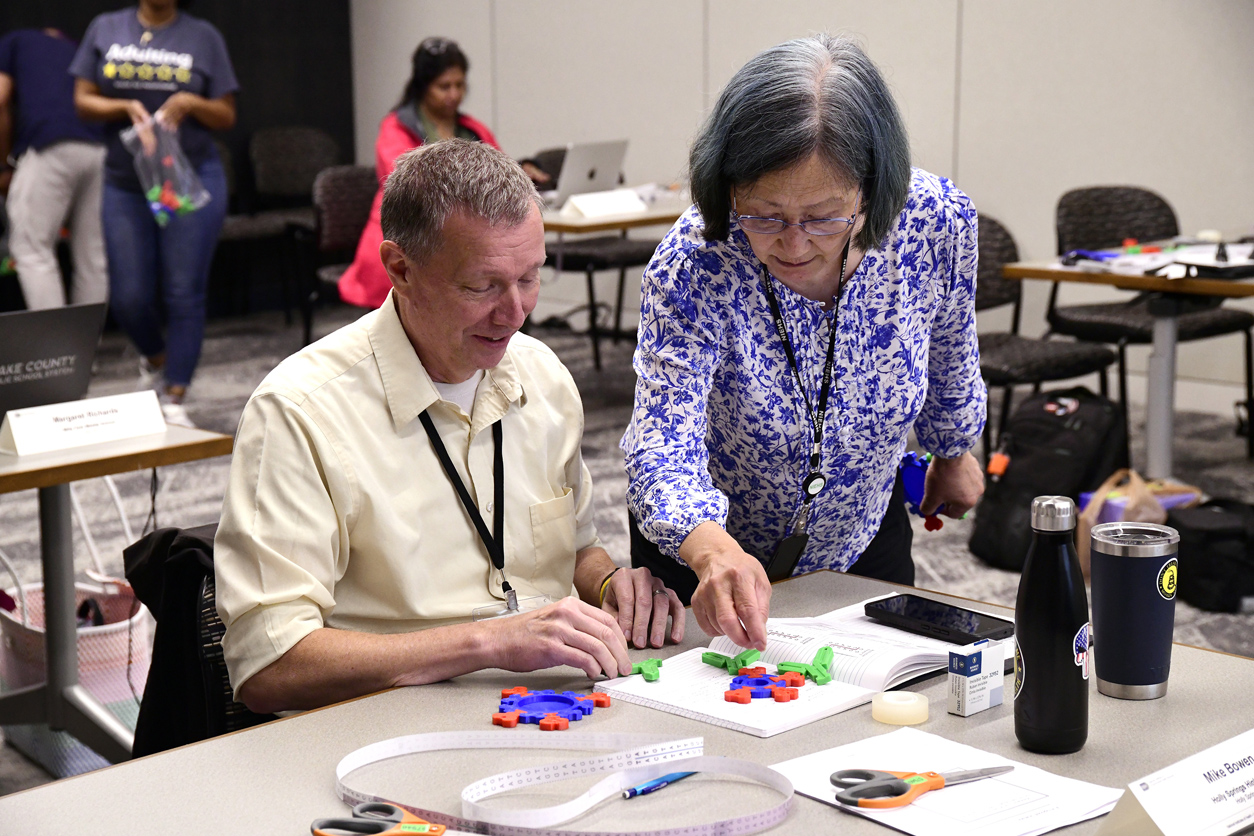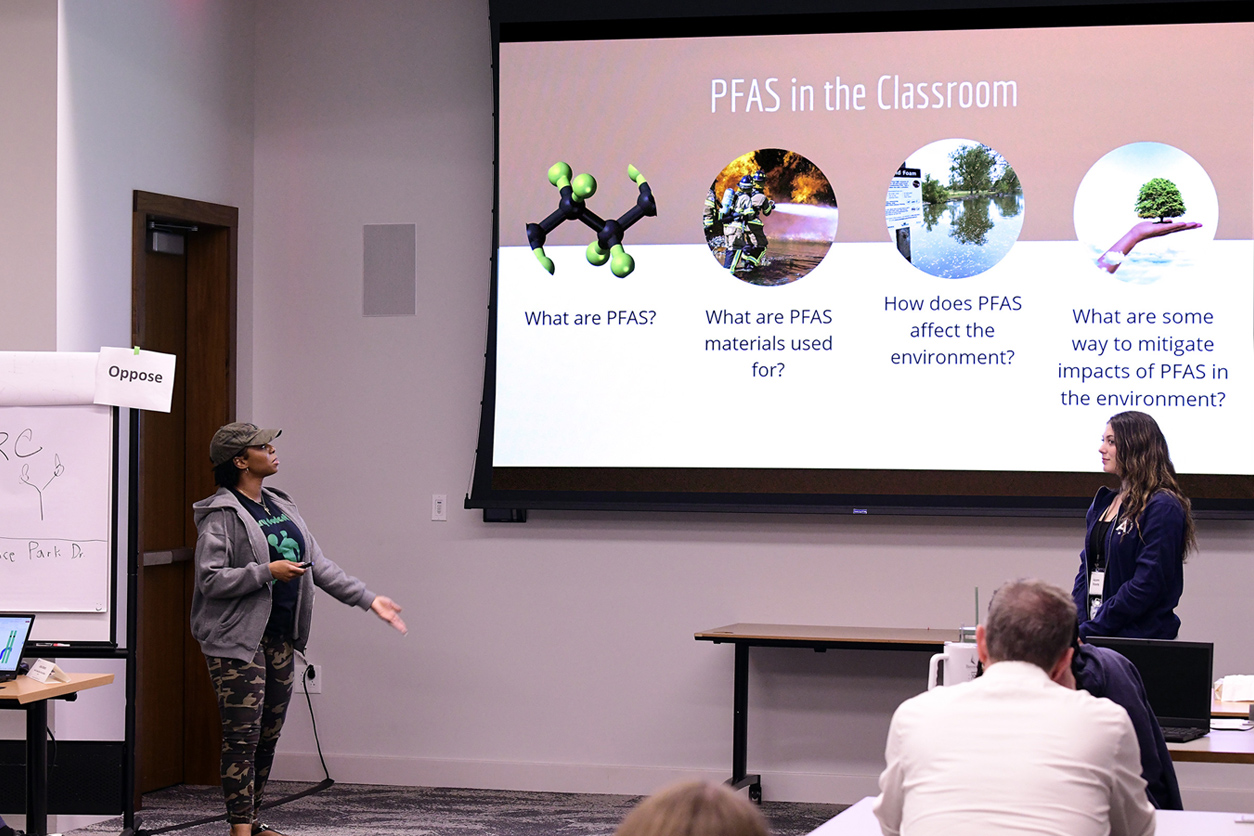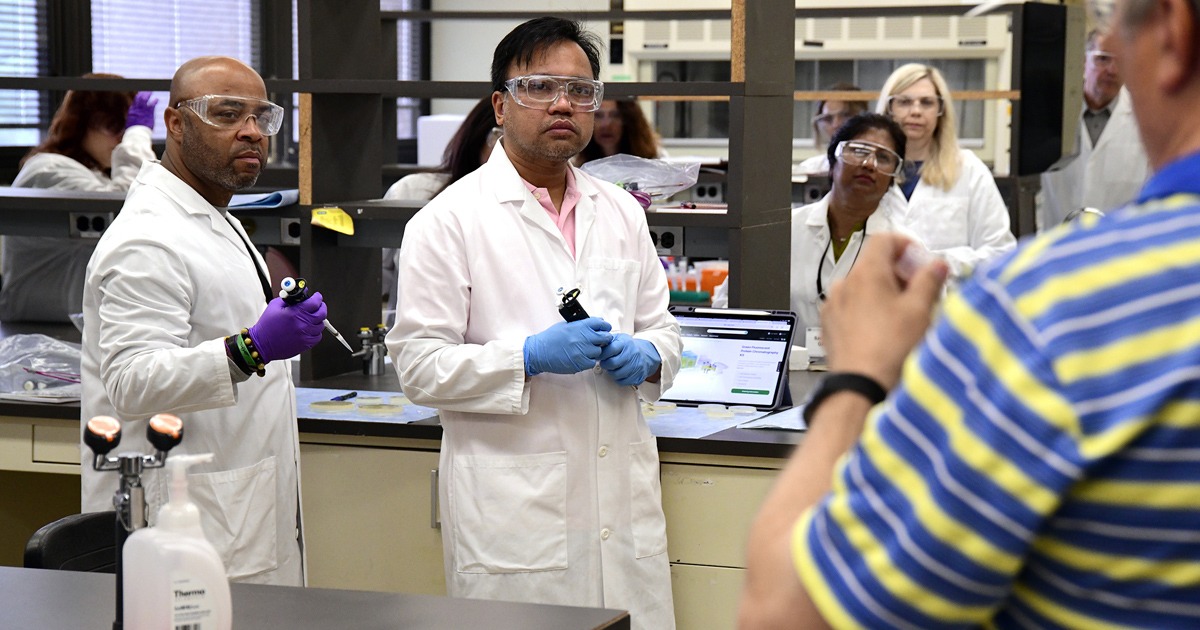The 2024 NIEHS Science, Teachers, and Research Summer (STaRS) Experience brought together 15 middle and high school teachers from across North Carolina for a professional development workshop July 8-19. The two-week program was conducted by the NIEHS Office of Science Education and Diversity and led by Huei-Chen Lee, Ph.D., K-12 science education program manager.
Teachers engaged in a diverse agenda that included exploring the latest biomedical research, conducting lab experiments, and participating in lectures presented by NIEHS scientists and university professors.
“One of our main goals is to give teachers the opportunity to explore the various dimensions of biomedical research firsthand, to see what is the potential, and to take that new knowledge back to the classroom to spark students’ interest in environmental health topics,” said Lee.
Engaging in the lab
During the first week of STaRS, teachers toured the NIEHS campus and facilities with much of the week dedicated to hands-on lab training. Teachers learned lab techniques, such as pipetting to transfer liquids, participated in experiments focused on molecular cloning, and gained knowledge about the value of fluorescence microscopy.
They also participated in case studies specifically geared for students who are focused on real-life situations.

“The 2024 STaRS program revealed that integrating real-world biomedical research into the classroom through hands-on learning can spark student curiosity and inspire the next generation of scientists,” said Sarmistha Ghosh, an Advanced Placement biology teacher at Charlotte-Mecklenburg Schools.
In addition, teachers toured the Biomanufacturing Training and Education Center (BTEC) at nearby North Carolina State University where they learned about career prospects for students and the educational and training opportunities that BTEC offers to develop skilled professionals for the biomanufacturing industry.
Exploring various scientific topics

During the second week of STaRS, NIEHS scientists and grant-funded researchers presented the latest scientific findings on topics including the Human Genome Project, examining breast cancer from genetic and environmental perspectives, and biotechnology.
In-depth presentations and discussions focused on additional topics, such as the what, why, and how of NIEHS research; the environment and human health connection; a group of chemicals known as PFAS in North Carolina; and strategies for effective lesson planning.
“The topics are meant to be engaging, informative, and various in their subject matter,” said Lee. “Biotech is changing the world, and the goal of science is to explore.”
Words of wisdom
During the last day of the workshop, NIEHS Director Rick Woychik, Ph.D., spoke to the teachers and reminded them of the impact they have on their students.
“I am very passionate about this program,” said Woychik. “When my 10th grade high school biology teacher started talking about how biology works with all these different molecules and cells bumping into each other and making things happen, it fired me up.”

As the teachers carry back such enthusiasm and knowledge to their students, they also learned that connections made during the STaRS program are lasting.
“I am still in touch with teachers from our past STaRS program,” Lee said. “This collaboration does not end today — it continues for as long as you would like it to.”
(Sam Tyler is a technical writer-editor in the NIEHS Office of Communications and Public Liaison.)
Source link
factor.niehs.nih.gov


